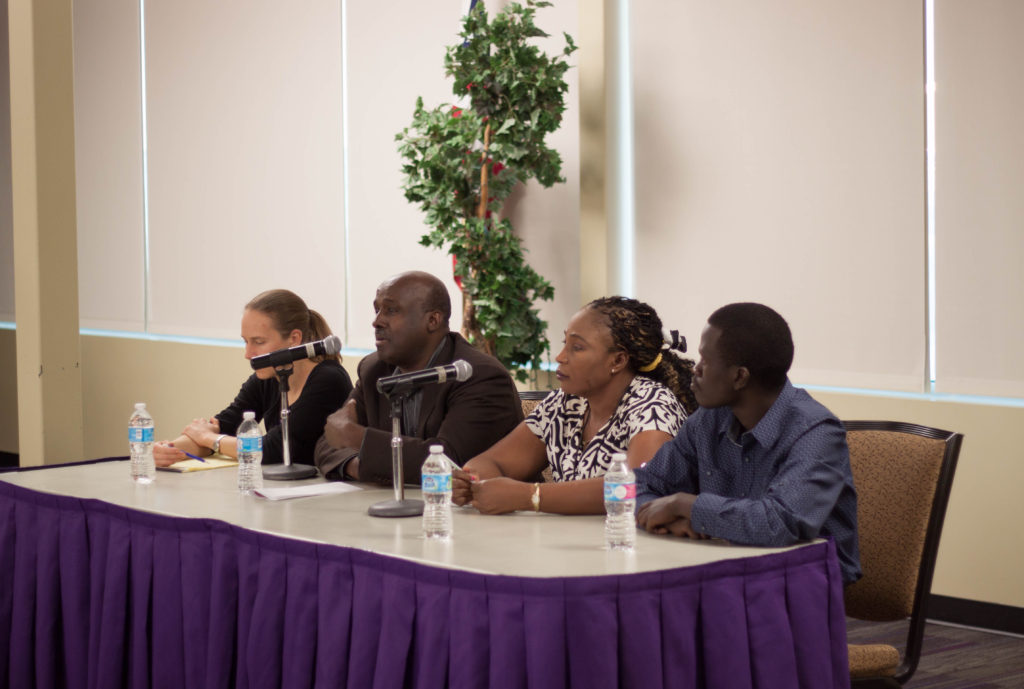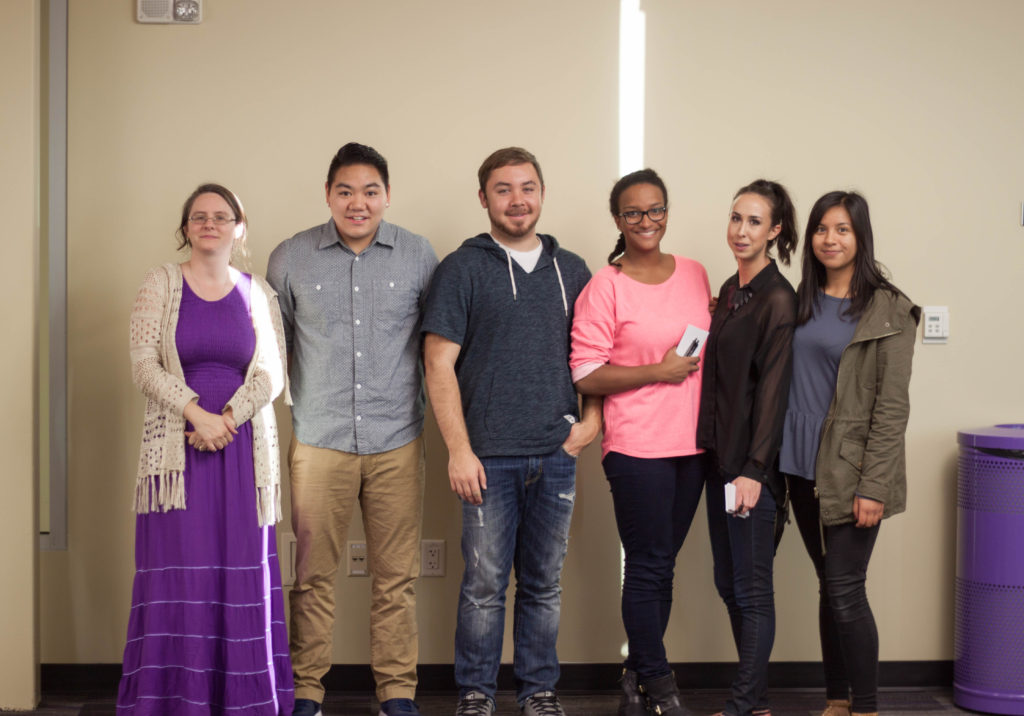
Panelists gave Weber State University students and community members a look into the life of refugees in the Shepherd Union Skyroom on Oct. 25.
The four panelists, three of whom are refugees, shared personal experiences about resettling in Utah.
Refugee and Wildcat, Janvier Sebagabo, was one of the panelists who shared his experience of escaping his home.
“There is a big difference between America and Africa,” Sebagabo said. He said that the culture shock was difficult to manage when he first arrived.
Sebagabo said one cultural barrier that he and many other refugees experience is the lack of computer skills. Sebagabo’s school had less than 20 computers for about 700 students.
The panelists said that, in addition to computer skills, refugees need to learn English—one of the most challenging barriers of resettlement.
“To feel welcome you have to communicate with others, but there is a language barrier,” Sebagabo said.
The panelists asked the participants to be more aware and sympathetic to the plights of the refugees.
“Being a refugee is painful and very difficult,” said Lina Wembi, a panelist and refugee.
Wembi was forced to become a refugee after her husband was killed in Central Africa. She had nine children, the oldest was a 17-year-old and the youngest was a baby-in-arms.
“It’s something you don’t want to go through, but you have no choice,” Wembi said. “I had to leave to save my kids and save my life.”
After fleeing to Cameroon for one year, Wembi and her family were allowed to relocate to the U.S. as refugees.
But qualifying for refugee status is a difficult task, according to panelist Aden Batar, who came to the U.S. as a refugee.
“The average amount of time to be recognized as a refugee is 2 years, but some have waited 30 years sitting in the refugee camp,” Batar said.
Batar now works for Catholic Community Services and helps refugee adjust to life in Ogden.
“We don’t pick a city for the refugees without community support. We want the community to help us, so we can have a successful resettlement,” Batar said.
Batar says that in the 20 years of his job, he has never heard of any problems from community members about the refugees he has helped.
“Utah is one of the most welcoming states to refugees in the United States,” Batar said.
Jenny Gnagey, one of the panelists and an assistant professor at WSU, agreed with Batar.
“With the influx of Syrian refugees and the backlash of the Paris attacks, Governor Gary Herbert was one of two Republican governors who welcomed refugees,” Gnagey said.
According to Gnagey, Utah has historically embraced refugees and asylum-seekers. “In Utah, we tend to lean toward the positive side,” she said.
Adoley Schwarze, an international student from Germany who helped organize the event, invited all students to spread that positivity by helping the Amnesty International Club, the University’s main connection with refugees.
“Some of the most important things we can do as WSU students is to help the refugees feel welcome, without judging them. We just need to accept them and love them,” Schwarze said.



















